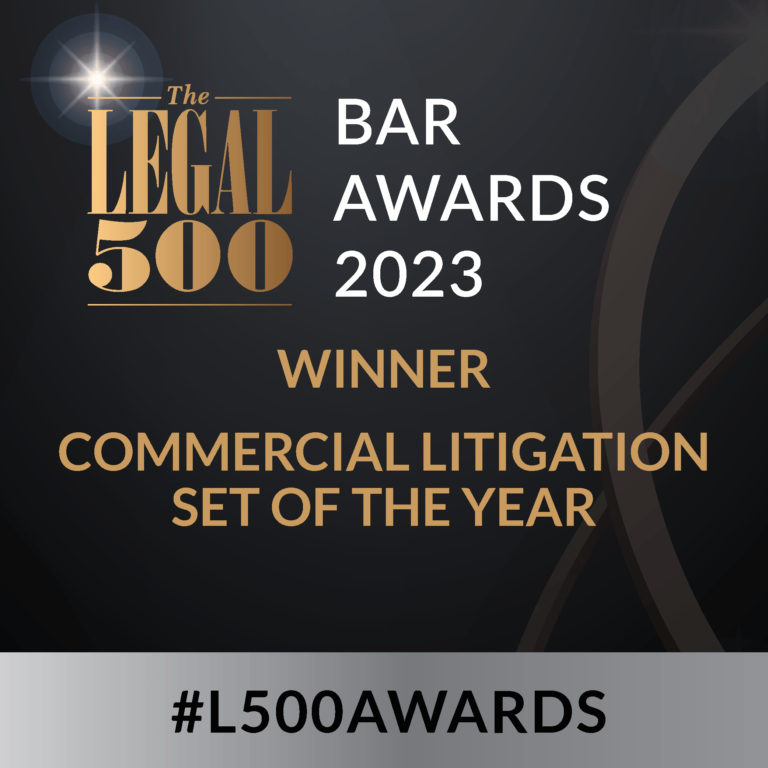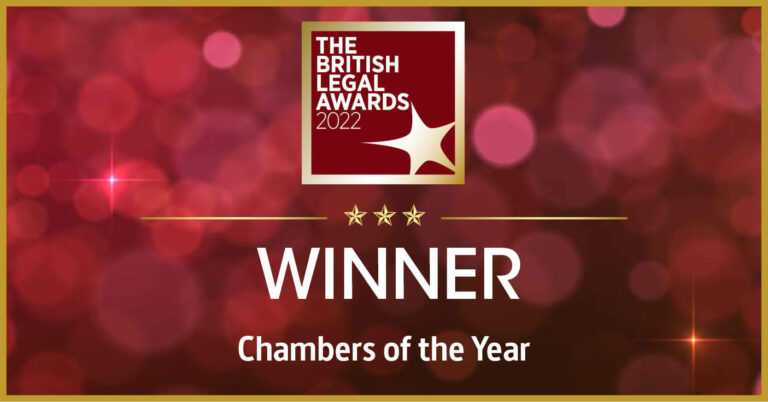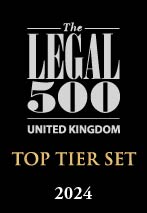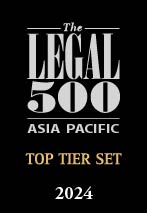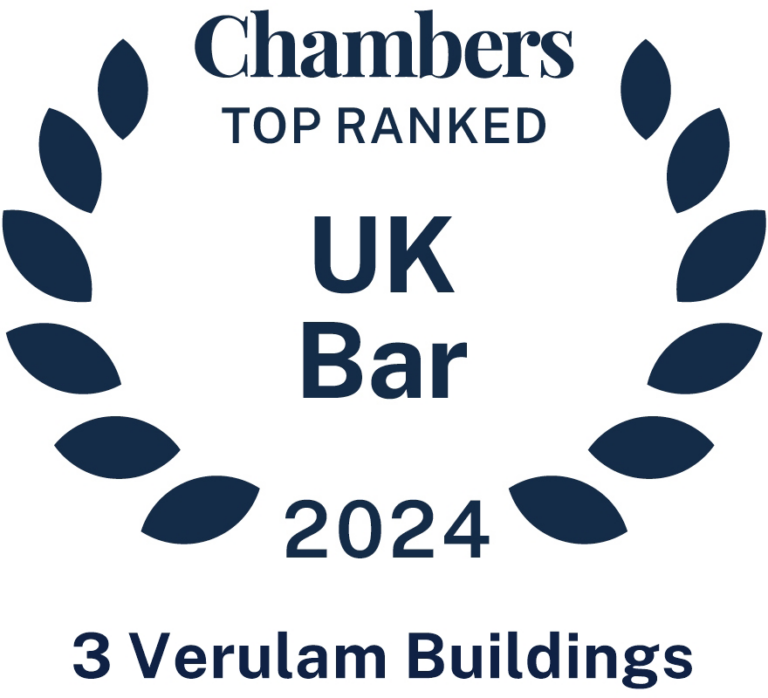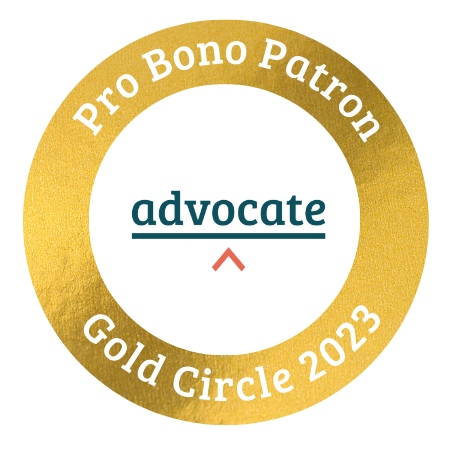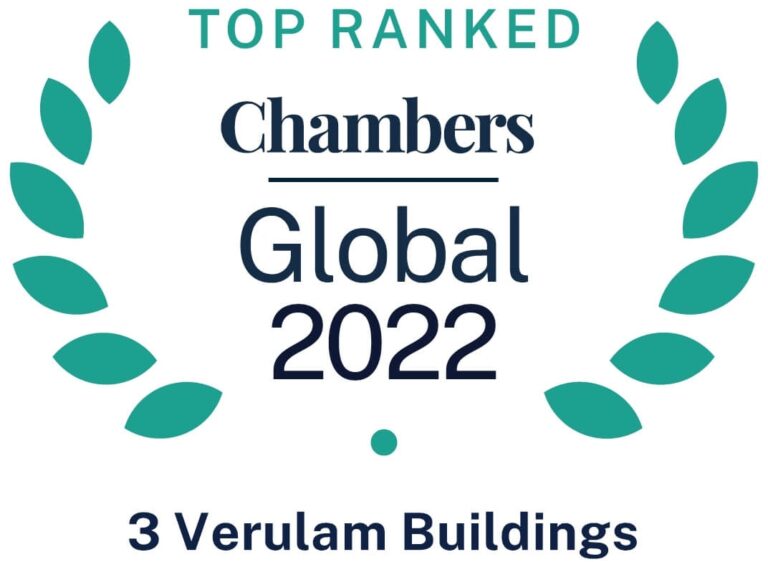
Gopal Subramanium
Practice Overview
One of the most talented jurists that India has produced in recent times, Gopal Subramanium was born in 1958 in Bangalore. He completed his schooling from St. Xavier's School, New Delhi, closely followed by a degree in law from the University of Delhi.
Gopal commenced his legal practice in 1980 in the Supreme Court of India, under the guidance of Mr. Soli J. Sorabjee, jurist & former Attorney General for India. In 1993, he was designated a Senior Advocate (the equivalent of a Queen's Counsel in the UK) suo motu by the Supreme Court, one of the youngest to be designated in the Supreme Court's history.
In 2005, Gopal was appointed Additional Solicitor General of India. He went on to serve as Solicitor General of India between 2009 and 2011. During his tenure as a law officer, he was honoured with the National Law Day Award for Outstanding Jurist, presented to him in 2009 by the President of India, for his consistent professional excellence and adherence to the highest traditions of the Bar.
Gopal continues to act as lead counsel in several path-breaking matters. He acted as lead counsel for Novartis AG in Novartis' challenge before the Supreme Court to a denial to grant it an Indian patent for the cancer drug ‘Glivec'.
Gopal’s arbitration experience includes appearing as lead counsel for Indian companies in ICC and domestic arbitrations. In addition, he regularly deposes as an expert witness on Indian law in SIAC and other international commercial arbitrations. Gopal has also served as a member of the arbitral tribunal presided over by Justice R.S. Pathak, former Chief Justice of India and Judge, International Court of Justice in arbitration between Transammonia AG and MMTC Limited. In 2017, he represented Japan’s Daiichi Sankyo in enforcement proceedings before the Delhi High Court for a US$ 550 million ICC award with the seat at Singapore. He was recently granted permission to appear in challenge proceedings concerning the same award before the Singapore High Court.
Gopal Subramanium has also appeared in a number of landmark cases concerning the law of arbitration in India, including the BALCO case (2012), where the Supreme Court of India ruled on the applicability of Part I of the Indian Arbitration & Conciliation Act, 1996, to arbitrations held in a foreign seat, and awards arising therefrom, and Sundaram Finance (1999) (in respect of a court's powers to grant interim protection to parties pending arbitration). He has appeared in a number of matters in the Supreme Court and various High Court concerning arbitrability of disputes, appointment of arbitrators and challenge to arbitral awards including those arising out of defence contracts, EPC contracts and infrastructure contracts.
In 2017, Gopal acted as lead counsel for the Petitioners in Justice K.S. Puttaswamy (Retd.) v. Union of India where a nine-judge bench of the Supreme Court of India unanimously held that there was a fundamental right to privacy under the Indian Constitution.
In 2013, Gopal acted as a member of a Committee to Recommend Amendments to Criminal Laws (headed by Justice J. S. Verma), which recommended much-needed amendments to various Indian laws to ensure the safety and dignity of women and young children.
Further, among his other scholarly works, Gopal Subramanium has contributed to, and edited, "Supreme But Not Infallible: Essays in Honour of the Supreme Court of India", a comprehensive work on the evaluation of the working of the Supreme Court of India, published in 2004 by the Oxford University Press.
Professional Experience
2018 – Present, Honorary Master of the Bench, the Honorable Society of Gray’s Inn
2015 – Present, Supplementary Judge, Qatar Financial Centre Regulatory Tribunal, Qatar International Court and Dispute Resolution Centre
2013 – Present, Associate Member and Arbitrator, 3 Verulam Buildings, London
Senior Advocate (1993 – Present)
2009 – 2011, Solicitor General of India (till 14th July, 2011)
2010 – 2011, Chairman, Bar Council of India
2005 – 2009, Additional Solicitor General of India (till 14th June, 2009)
1993, Designated Senior Advocate suo moto by the Supreme Court of India
Advocate (1980 to 1993)
1981 – 1983, Appointed Standing Counsel for the Union of India in the Supreme Court. Additionally, appeared on behalf of the states of Madhya Pradesh and Uttar Pradesh in numerous cases.
Retained by M/s. Amarchand Mangaldas & Hira Lal Shroff & Co., Solicitors and Advocates
1980 – 1981, Joined the chambers of Soli J. Sorabjee, Senior Advocate and former Attorney General for India.
Notable Cases
- Acted as lead counsel for the Petitioners in Justice K.S. Puttaswamy (Retd.) & Anr. v. Union of India & Ors. (2017) where a nine-judge bench of the Supreme Court of India unanimously held that there is a fundamental right to privacy under the Indian Constitution.
- Acted as prosecuting counsel for the Central Bureau of Investigation (CBI) in the trial of persons accused of setting off a series of bomb blasts in Mumbai (1993). Further, appeared as the CBI’s lead counsel in this matter until 2012, when appeals from the trial were heard by the Supreme Court.
- Acted as Special Public Prosecutor in the case involving a terrorist attack on the Indian Parliament in 2001.
- Before the Supreme Court, successfully defended the conviction of Ajmal Kasab, the sole surviving terrorist who carried out attacks on Mumbai in November 2008.
- Appeared on behalf of the Union of India at the Bombay High Court in a writ petition pertaining to the security of citizens after the Mumbai terrorist attacks of November 2008.
- Appeared on behalf of the Union of India in Bachpan Bachao Andolan v. Union of India and submitted a report titled “The Indian Child: India’s Eternal Hope and Future”. The report devised plans to curb the menaces of immoral trafficking, child pornography, and slavery and begging amongst children.
- Before the Supreme Court, appeared on behalf of the Union of India and defended its interests in the gas-dispute between Reliance India Ltd. and Reliance Natural Resources Ltd.
- Argued for greater literary and artistic freedom in Devidas Ramachandra Tuljapurkar v. State of Maharashtra (2015).
- Acted as lead counsel for the Government of India in litigation concerning irregularities in the allocation of 2G radio-spectrum bandwidth to various telecom operators.
- Acted as lead counsel for Novartis AG in its challenge before the Supreme Court to a denial to grant it an Indian patent for the cancer drug ‘Glivec’.
- Successfully led arguments on behalf of the Government of Delhi in a case concerning the constitutional division of powers between the Delhi Government, the Union Government, and the Lieutenant Governor of Delhi.
- Appeared on behalf of the Union of India before the High Court of Assam in a matter pertaining to the imposition of President’s Rule in the State of Nagaland.
- As Solicitor General of India, appeared in Asoka Kumar Thakur v. Union of India, a case that considered reservations for economically backward classes of persons.
- Appeared for the Union of India in the Supreme Court of India in a matter relating to the phone-tapping of Members of Parliament.
- On behalf of the Union of India, appeared before the Supreme Court in the case concerning the Dissolution of the Bihar Legislative Assembly (Rameshwar Prasad (VI) v. State of Bihar, 2006).
- Appointed Amicus Curiae in University of Kerala v. Council, Principal’s College, Kerala & Ors. (2009), and assisted the court in preventing the practice of ‘ragging’ in college campuses.
- Appeared for the Attorney General for India in the matter relating to the expulsion of Members of Parliament by the Speaker (Raja Ram Pal v. Hon’ble Speaker, Lok Sabha, 2007).
- Appeared before the Supreme Court in a matter involving the POTA Review Committee’s decision concerning persons accused in the Godhra Riots.
- Appointed as Special Public Prosecutor in the High Court of Delhi and in the Supreme Court of India to conduct the ‘Parliament Attack case’. Received distinguished mention.
- Assisted and appeared as Counsel in the Union Carbide case concerning the Bhopal Gas Tragedy.
- Appointed Amicus Curiae in Krishnakant Tamrakar v. State of Madhya Pradesh (2018), a case concerning access to justice and swift justice delivery. The Supreme made a series of recommendations concerning the filling of vacancies across courts and the appointment of competent and impartial judges.
- Appeared in Brij Lal v CIT (2011), where the Court crystallized the role of the Settlement Commission under the Income Tax Act.
- Appointed Amicus Curiae by the Supreme Court in Imtiyaz Ahmed v. State of UP (2012). Collected and analyzed data regarding the pendency of criminal trials after High Courts had granted stay in the matters.
- Appeared on behalf of the Union of India in the matter concerning the declaration of the Student Islamic Movement of India as an Unlawful Association under the Prevention of Unlawful Activities Act.
- Appeared on behalf of the State of Kerala in the Italian Marines’ case.
- Appointed Amicus Curiae by the Supreme Court of India in a matter concerning the administration and upkeep of the Jagannath Temple, one of the most sacred sites for Hindus in the world.
- Appeared in the matter concerning the Haji Ali Dargah, a case that dealt with equality in religious worship.
- Appeared in State of Haryana v. Jagdish (2010) where the Supreme Court accepted the view that the power of the President and the Governor, under certain provisions of the Constitution, was unfettered.
- Appeared on behalf of the State of Madhya Pradesh in Sasta Anaj Vikreta Sangh v. State of Madhya Pradesh (1981). The case revolutionized the distribution of essential commodities in India.
- Acted as counsel to the Justice Verma Commission of Inquiry (which inquired into security lapses leading to the assassination of Mr. Rajiv Gandhi, the former Prime Minister of India), the Justice Wadhwa Commission of Inquiry (which investigated the assassination of a missionary named Graham Staines), and the Justice K. Venkataswami Commission (which inquired into the Tehelka tapes that has exposed corruption in politics).
- Appointed as the Chairman of a Commission of Inquiry to investigate the affairs of the Delhi District Cricket Association.
Arbitration
- In an arbitration between Transammonia AG and MMTC Limited, served as Member of an arbitral tribunal presided over by Justice R.S. Pathak, former Chief Justice of India and Judge, International Court of Justice.
- Appeared as an expert witness on Indian Law in a SIAC arbitration before a panel comprising, inter alios, of Tan Sri Cecil Abraham and Alan Thambaiyah.
- Appeared with special leave (Temporary Call) before the High Court of Singapore in BAZ v. BBA, successfully defending a US$ 500 million arbitral award that was under challenge.
- Appeared on behalf of the Petitioner in Daiichi Sankyo v. Malvinder Mohan Singh & Ors.. The Delhi High Court ordered the enforcement of a US$ 500 million award.
- Acted as an expert witness on Indian Law in an AAA/ICDR arbitration between two New York-based private equity funds and an international bank.
- Appeared as the lead counsel for Indian companies in several ICC and domestic arbitrations.
- Appeared as an expert witness on Indian Law in SIAC Arbitrations.
- Appeared before the Supreme Court of India in the BALCO case (2012), where the Supreme Court of India ruled on the applicability of Part I of the Indian Arbitration and Conciliation Act, 1996 to arbitrations held in a foreign seat and awards arising therefrom.
- Appeared before the Supreme Court in Sundaram Finance v. NEPC India Ltd. (1999), which considered the powers of a court to grant interim protection to parties during the pendency of arbitral proceedings.
- Appeared in a number of arbitration-related matters before the Supreme Court and High Courts – concerning the arbitrability of disputes, the appointment of arbitrators, challenge to awards, and enforcement proceedings – including those arising out of defense contracts, EPC contracts, and infrastructure contracts.
Notable Contributions to the Legal Fraternity
- As a commissioner appointed by the Supreme Court in Sheela Barse Vs. Union of India, submitted a detailed report on the conditions of mentally ill persons illegally detained in prisons in Assam. The report led to the establishment of the Tezpur Mental Hospital.
- As Amicus Curiae and Chairman of the Bar Council of India, submitted a Report on Reform of Legal Education to the Supreme Court, incorporating recommendations for improving the standards of legal education, including the constitution of the National Legal Knowledge Council and the introduction of an All India Bar Examination.
- Assisted the Supreme Court as Amicus Curiae in a matter pertaining to the upkeep and administration of the Sree Padmanabhaswamy Temple.
- Assisted the Court in reformulating National Property Laws for twenty-three States in India by eradicating the ‘Agreement to Sell – Power of Attorney – Will Method’ in Suraj Lamps v. State of Haryana (2012) 1 SCC 656.
- Assisted the Court as Amicus Curiae in upholding the Right to Life and Justice and in formulating a Special Investigation Team to inquire into the Sohrabbuddin Fake Encounter case.
- Co-conducted a nation-wide conference, “National Consultation for Strengthening the Judiciary Towards Reducing Pendency and Delays”, analyzing the role of Government Litigation and reformulating the National Litigation Policy.
- Served as member of the Justice J.S. Verma Committee to Recommend Amendments to Criminal Laws appointed by the Government of India. The Committee recommended amendments to various Indian laws to ensure the safety and dignity of women and young children.
- Assisted the Court as Amicus Curiae in BCCI v. Cricket Assn. of Bihar on the implementation of the Justice Lodha Committee recommendations.
Appreciation by the Indian Judiciary
Report of the One-Man Commission of Inquiry headed by Justice J.S. Verma, Judge, Supreme Court of India to Enquire Into The Assassination of Shri Rajiv Gandhi, Former Prime Minister of India (June 1992):
- “7.09 The Commission had apprised Shri Gopal Subramaniam that his role as counsel assisting the Commission was that of an amicus curiae to assist in ascertaining the truth and promoting the cause of justice, uninfluenced by any individual interest. In short, his primary duty was to ensure that all relevant material was brought on record and everything for and against each party is placed before the Commission for doing complete justice to everyone…
- 7.10 The performance of this onerous duty by Shri Gopal Subramaniam was of the highest order to the extent that all other counsel in their concluding address made special mention of this fact and uniformly praised him for the dispassionate discharge of his duty. The Commission fully associates itself with these sentiments expressed by the learned Attorney General of India, the learned Advocate General of Tamil Nadu and all other eminent counsel who appeared before the Commission.
(…)
- Advocate General of Tamil Nadu: ‘On behalf of the Government of Tamil Nadu and on my behalf, I take this opportunity to express our sense of gratitude to my Lord for having offered the full opportunity to present our case before the Commission…I will be failing in my duty if I do not mention about the exemplary manner in which the Commission’s Counsel, Mr. Gopal Subramaniam, has conducted himself in the proceedings. But I would say without fear of exaggeration that Mr. Gopal Subramaniam has been extremely fair to all the parties before the Commission and the way in which he has assisted this Commission is something which has no parallel in the past…’”
Mohd. Ajmal Amir Kasab v. State of Maharashtra, (2012) 9 SCC 1 at Paragraphs 592 and 593:
- “592. At the beginning of the hearing of the appeal, Mr Gopal Subramanium avowed that, though appearing for the prosecution, he would like the best for the appellant. He wished that the case of the appellant be presented before the Court at the highest level and that it should receive the most careful scrutiny by the Court. The solemnity and sincerity of his declaration set the tone for the proceedings before the Court. The discourses were luminous, warm and stimulating but completely free from heat, rancor or anger, leave alone any vengefulness. Mr Subramanium, erudite and sensitive, was full of restraint; always downplaying the prosecution case a notch or two and never making a statement of fact unless absolutely certain of its correctness. Mr Ramachandran, cool and clinical, gently tried to persuade the Court to his point of view. In the course of the hearing of the case, which was spread over 13 weeks, not once were the voices raised, not once was the counsel of the other side interrupted and contradicted on a statement of fact. In my twenty years on the Bench I have not heard a serious case debated in such a congenial atmosphere as created by Mr Subramanium and Mr Ramachandran in this case.
- 593. Mr Ramachandran, appearing for the appellant, was assisted by Mr Gaurav Agrawal and a small team of juniors. Mr Subramanium, representing the State of Maharashtra, was assisted by Mr Ujjawal Nikam, the Special Public Prosecutor who conducted the trial and a team of juniors. The juniors’ teams also showed remarkable preparation and resourcefulness. Any query on facts was answered in no time with reference to volume number and page number from the records that appeared like a small mountain. We are indebted to Mr Subramanium and Mr Ramachandran and their respective teams and we put our gratitude on record.”
Voluntary Organisation in Interest of Consumer Education (VOICE) v. Registrar Tamil Nadu State Consumer Disputes Redressal Commission, 2003 SCC OnLine NCDRC 1 at Paragraph 1:
“1. It is the normal practice to record appreciation of the assistance rendered by the amicus curiae at the close of the order. In the present case, however, we make a departure. We record our appreciation of the able assistance rendered by Mr. Gopal Subramaniam, Senior Advocate which has benefited us in writing this order. This Commission is grateful to him for the deep study he made on the subject and presented all the points with clarity and with his usual lucid manner. We also record our appreciation of the assistance rendered by Mr. Dayan Krishnan, Ms. Sonia Sharma and Ms. Astha Tyagi who were appointed amicus curiae to assist Mr. Gopal Subramaniam. It was gracious of Gopal Subramaniam to say that but for the research made by the assisting counsel he would not have been able to present his arguments.”
Sheila Barse v. Union of India & Ors., Supreme Court of India, Order dated 03 October 1994 at Paragraphs 1 and 2:
- “1. We have perused the excellent report submitted by Sri Gopal Subramanium, Senior Advocate. At the outset, we consider it our duty to place on record our deep appreciation of the time and energy spent by Sri Subramanium in inquiring into the situation. We have no hesitation in accepting the report in its entirety. There is one other aspect which requires immediate attention.
- 2. Sri Subramanium, though worked in his capacity as Commissioner appointed by this Court, appears to have put himself to personal expenditure in tens of thousands of rupees. We request him to furnish an account so that at least there should be some restitution of the money spent by him.”
Dhronamraju Satyanarayana v. N.T. Rama Rao & Ors., AIR 1988 AP 69 at Paragraph 23:
- “23…It was a pleasure watching Shri D. Gopala Subrahmanyam assisting so ably the learned Attorney General of India. We are very impressed by his thoroughness on facts and law and we place on record our appreciation of the assistance given by him….”
Common Cause, A Registered Society v. Union of India, (1999) 6 SCC 667 at Paragraph 118:
- “118. Mr Gopal Subramaniam, learned Senior Counsel appearing as amicus curiae in the case and who, we must record, equally matched the forensic skill of Mr K. Parasaran and rendered invaluable assistance to us, contended that it was not merely a matter of discretionary quota which was the basis of the judgment under review, but the arbitrary manner, in which the discretion was exercised, which ultimately resulted in the quashing of all the allotments made by the petitioner who was found to have allotted the petrol pumps not only to the relatives of his personal staff, but also to the sons of Chairmen of Oil Selection Boards and even to the members of the Oil Selection Boards and, therefore, the Court had rightly held the exercise of discretion to be motivated, arbitrary and for extraneous considerations. Since this question again turns on the merit of the allotments made by the petitioner, we would not look into it. We have mentioned the philosophy of discretionary quota being made available to the Ministers, only as a prelude to our decision on the question whether on the facts of this case the petitioner could be held to have committed the tort of misfeasance in public office. The basis of the finding recorded in the impugned judgment on this question is the decision of this Court in Lucknow Development Authority case [(1994) 1 SCC 243] which did not consider even the basic elements which constitute the tort of misfeasance which we have already discussed above.”
R.K. Anand v. Delhi High Court, (2009) 8 SCC 106 at Paragraphs 109 and 334:
- “109. On these above issues we were addressed at length by Mr Altaf Ahmed, learned Senior Advocate appearing for R.K. Anand and Mr P.P. Rao, learned Senior Advocate appearing on behalf of I.U. Khan. We also heard Mr Harish Salve, learned Senior Advocate representing NDTV, which though not a party in the appeals was, nevertheless issued notice by us. We also received valuable assistance from Mr Gopal Subramanium, Senior Advocate and Mr Nageswara Rao, Senior Advocate, the amici appointed by us having regard to the important issues involved in the case. We spent a full day viewing all the sting recordings, the recording of the programmes telecast by NDTV on 30-5-2007 and the eight minute CD prepared by R.K. Anand. Present at the viewing were all the counsel and one of the appellants, namely, R.K. Anand.
- 334. We are glad to note that Mr Gopal Subramanium, the amicus fully shared our concern and realised the gravity of the issue. In course of his submissions he eloquently addressed us on the elevated position enjoyed by a lawyer in our system of justice and the responsibilities cast upon him in consequence. His written submissions begin with this issue and he quotes extensively from the address of Shri M.C. Setalvad at the Diamond Jubilee Celebrations of the Bangalore Bar Association, 1961, and from the decisions of this Court in Pritam Pal v. High Court of M.P. [1993 Supp (1) SCC 529 : 1993 SCC (Cri) 356] (observations of Ratnavel Pandian, J.) and Sanjiv Datta, In Re [(1995) 3 SCC 619] (observations of Sawant, J. at pp. 634-35, para 20). We respectfully endorse the views and sentiments expressed by Mr M.C. Setalvad, Pandian, J. and Sawant, J.”
Rameshwar Prasad (VI) v. Union of India, (2006) 2 SCC 1 at Paragraph 18:
- “18. Mr Narasimha, appearing in Writ Petition (C) No. 353 for the petitioner, also adopted the arguments of Mr Sorabjee but at the same time further contended that it is not legally permissible to order the dissolution of the Assembly before its meeting even once and the MLAs being administered the oath as contemplated by the Constitution. This was also the submission of Mr Viplav Sharma. Arguments on behalf of the respondent Union of India were led by the learned Attorney General, Mr Milon Banerji, followed by the learned Solicitor General and the Additional Solicitor General, Mr Goolan Vahanvati and Mr Gopal Subramanium respectively. Mr P.P. Rao, learned Senior Advocate argued for the State of Bihar. We place on record our appreciation for the excellent and very able assistance rendered by all the advocates.”
Pareena Swarup v. Union of India, (2008) 14 SCC 107 at Paragraph 12:
- “12. Inasmuch as the amended/proposed provisions, as mentioned in para 11, are in tune with the scheme of the Constitution as well as the principles laid down by this Court, we approve the same and direct the respondent Union of India to implement the above provisions, if not so far amended as suggested, as expeditiously as possible but not later than six months from the date of receipt of copy of this judgment. The writ petition is disposed of accordingly. No costs. This Court records its appreciation for the valuable assistance rendered by Mr K.K. Venugopal, learned Senior Counsel and Mr Gopal Subramanium, learned Additional Solicitor General.”
Jai Prakash v. National Insurance Co. Ltd., (2010) 2 SCC 607 at Paragraph 14:
- “14. In this background, to find some solutions, on 9-9-2008, this Court requested Shri Gopal Subramanium, to assist the Court as amicus curiae. The learned amicus curiae with his usual thoroughness and commitment has examined the issues and submitted a series of reports and has also made several suggestions for consideration. He has also referred to and relied on a series of zealous directions issued by a learned Single Judge of the Delhi High Court to expedite and streamline the adjudication of motor vehicle claims and disbursement of compensation.”
Novartis AG v. Union of India, (2013) 6 SCC 1 at Paragraph 153:
- “153. Let us now consider the case of the appellant as made out in the subject application and the supporting affidavits, and examine the issue of enhanced efficacy of the beta crystalline form of Imatinib Mesylate vis-à-vis Imatinib in free base form. It is seen above that all the pharmacological effects of Imatinib Mesylate in beta crystalline form are equally possessed by Imatinib in free base form. The position is not only admitted but repeatedly reiterated in the patent application. Mr Subramanium, with his usual fairness and candour, explained the position by stating that Imatinib free base is actually the active therapeutic ingredient, but in free base form Imatinib has very little or no solubility. It is, therefore, not capable of being administered as a drug to human beings. In the words of Mr Subramanium, if given in solid dosage form, Imatinib free base would sit in the stomach like a brick and would pass out with no therapeutic effect. The invention of the methanesulfonic acid addition salt of Imatinib makes the therapeutic ingredient (that continues to be the same) highly soluble, and therefore very suitable for being administered as a drug to humans. The further invention of the beta crystalline form of Imatinib Mesylate adds to its properties and makes it an even better drug than Imatinib Mesylate. The subject product, that is, the beta crystalline form of Imatinib Mesylate, thus demonstrates a definite and tangible enhancement of efficacy over Imatinib in free base form.
Board of Control for Cricket v. Cricket Assn. of Bihar, (2016) 8 SCC 535 at Paragraph 105:
- “105. With these observations we dispose of the matter finally placing on record our deep appreciation for the commendable work which the Committee has done in a short period. We also place on record our appreciation and gratitude to Mr Gopal Subramanium, Senior Advocate, for lending valuable assistance to us as Amicus Curiae. No costs.”
Indra Sawhney v. Union of India, (2000) 1 SCC 168 at Paragraph 93:
- “93. We thank the learned Amicus Curiae, Shri Gopal Subramanium for his valuable assistance.”
Report of the Justice D.P. Wadhwa Commission of Inquiry into the assassination of Graham Stewart Staines (June 1999)
- “I owe my special thanks to Mr. Gopal Subramanium, Senior Advocate, who as Senior Counsel to the Commission has so ably assisted me in conducting the proceedings. The Commission has greatly benefited by his erudition, his deep commitment and absolute devotion towards his work and the guidance which he has provided at every stage of the proceeding. He has set very high standards of professional competence for the members of the Bar to emulate…”
Lok Prahari, Through its General Secretary v. The State of Uttar Pradesh, W.P. (C) No. 864 of 2016at Paragraph 11:
- “11…Though Shri Shukla had advanced his arguments and contentions with great clarity, yet, having regard to the importance of the question raised we had thought it proper to take the assistance of Shri Gopal Subramanium, learned Senior Counsel of this Court and to assist him, we had thought it proper to request Shri Gopal Sankaranarayanan, learned counsel, a member of the Supreme Court Bar Association. Both Shri Gopal Subramanium, learned Senior Counsel and Shri Gopal Sankaranarayanan, learned counsel have rendered their valuable assistance to this Court which assistance is being acknowledged by the Court at the very outset of the present order.”
Languages
- English
- Hindi
- Tamil
- Sanskrit

